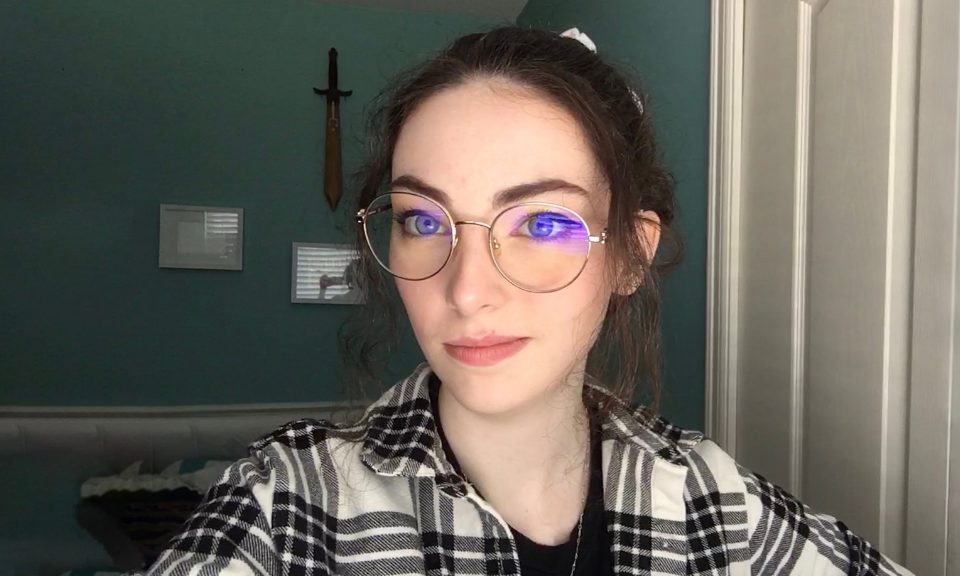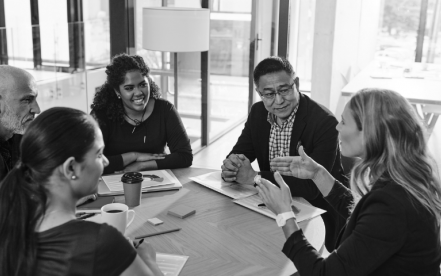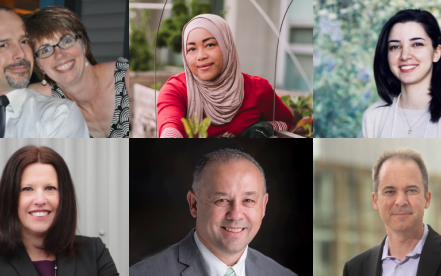Learning the way to self-care

SFU student Ashley Chamberlain shares how accessing health and counselling has had a positive impact on her university experience.
Like many of her peers, third-year student Ashley Chamberlain juggles a lot while pursuing her BA at SFU. With a major in archeology and minor in humanities, she’s taking a full slate of courses, working part-time as a student caller for SFU Advancement & Alumni Engagement, and (for fun) writing and producing the second season of “FeyFinders,” a Dungeons & Dragons podcast featuring the story of five fearless teens trying to stop the end of the world while also figuring themselves out.
Ashley is passionate when she speaks about her academic journey. And she is especially animated talking about the hands-on learning she’s done in the area of “experimental archeology,” where students replicate and test traditional techniques of ancient cultures. On top of making a traditional Chinese ink stick with soot and homemade fish glue, Ashley has tried flint knapping to make an obsidian knife and this semester she’ll make Roman concrete from limestone, volcanic ash, and seawater, and test its durability.
Bright and inquisitive, Ashley has been candid about student mental health and her own particular challenges with anxiety. In fall 2021, she participated in an SFU campaign to generate support for SFU’s Health and Counselling Services (HCS). It’s an important resource that many students access at some point during their degree.
Ashley recently shared how accessing health and counselling has helped her learn strategies for self-care, self-understanding and facilitating personal growth.
Q&A with Ashley
What would you say has been the most surprising or enlightening part of your journey regarding caring for your own mental health?
For me, it has been learning that it is okay to schedule time for myself and to take the necessary steps to ask for help when I’m struggling. I think when you go to university, you expect it to be difficult, so it’s deceiving. When I was struggling, I’d tell myself “This is fine!” or “I can get through this!” when really, I was not fine. But once I took the step of asking for help, it was so much easier to keep going.
Did you find SFU’s Health and Counselling Services accessible?
When I first visited, I was actually surprised at how many options there were for me. Dealing with your mental health is a lot like learning, and everyone has different ways they learn. One-on-one counselling might not be for everyone. HCS doesn’t take a one-size-fits-all approach at all. They really are there to help guide you. You can be in peer groups or group therapies. They help you figure out where to start.
What advice would you offer students who find themselves struggling?
The biggest hurdle is just asking, but I’d tell them, ‘Go to Health and Counselling and they will find a way to help you!’ Sometimes we perceive that it’s weak to ask for help, but it’s not weak—I think it’s incredibly strong to recognize you’re struggling and reach out.
How has accessing HCS prepared you for the remainder of your post-secondary journey?
I’ve grown a lot and learned so much! I’d say it’s given me the tools to recognize when and how to reach out for help. I know the signs of fatigue, demotivation, and my own anxiety spikes and I have strategies like texting my roommates if I need to get out of the house. Another exercise they encouraged me to try is to periodically write letters to my younger self, telling myself it’ll be okay, which has also been very reassuring.
What would you say to the SFU community who has donated and supported the Health and Counselling Services Development Fund?
First of all, of course, I want to say, “Thank You!” But also, I don’t know if I would have gone to HCS if I had to pay out of my own pocket, so I’d also say that removing that expense barrier makes such a big difference to students overall. Students can access these resources for free.
Also, HCS is always striving to improve. They ask for and incorporate student feedback on their programs. They really are leading students to improve themselves as people. And that’s what we’re here to do at university: we’re learning about ourselves and growing into adults. Having these resources available helps us understand ourselves and the more you understand yourself, the more you’re going to love yourself.


